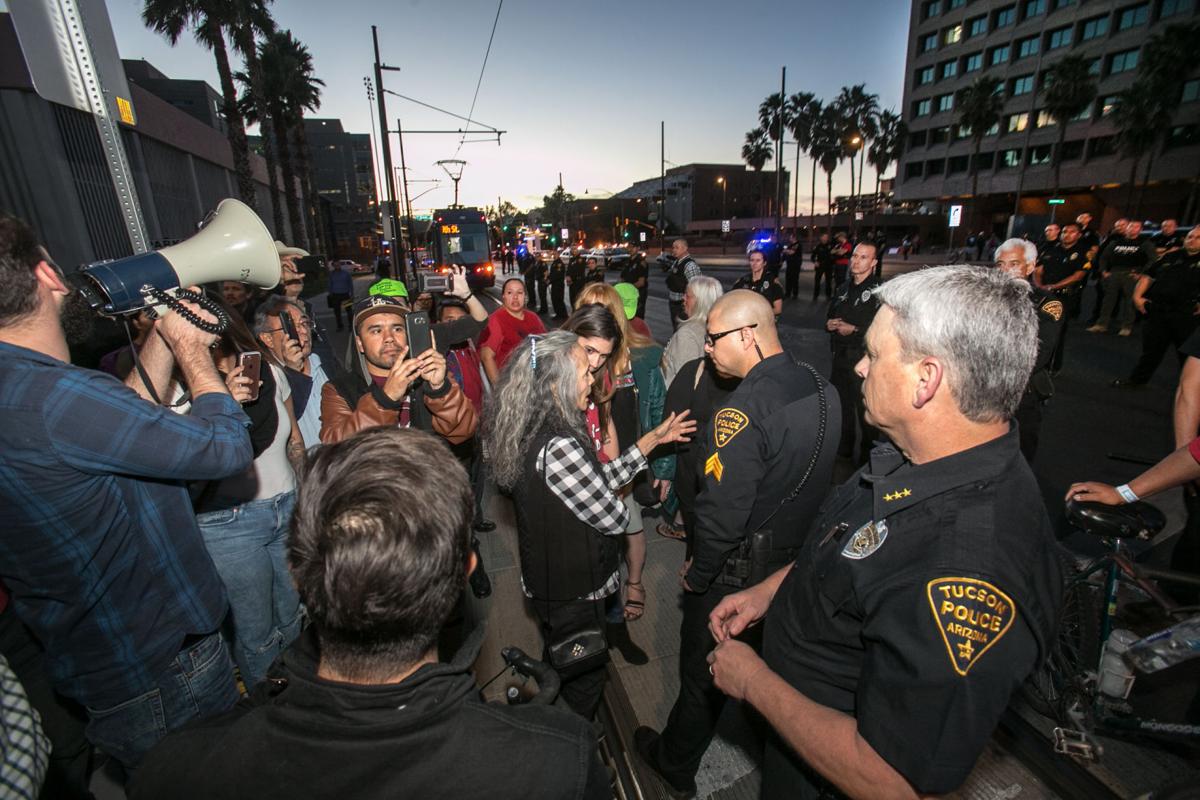PHOENIX — A state bill that would have allowed protesters to be arrested over the potential to riot is dead — at least for this year.
House Speaker J.D. Mesnard said Monday he does not know whether legislation to expand Arizona’s racketeering and conspiracy statutes to include rioting are needed to go after those who organize violent demonstrations.
“I haven’t heard the policy arguments to decide one way or the other,” he told Capitol Media Services.
But what Mesnard said he has decided is that the public has concluded that SB 1142 would chill the rights of Arizonans to peacefully protest. And that, he said, makes the legislation politically unacceptable.
“You can’t have that many people, whether it does or doesn’t, believing that we’re, in this bill, taking away people’s rights,” Mesnard said.
The decision is a major setback for proponents. That includes Sen. John Kavanagh, R-Fountain Hills, who became the measure’s biggest defender when it was approved last week by the Republican-controlled Senate on a party-line vote.
“I think that it’s been misrepresented in the media,” he said Monday. “Little old ladies at a demonstration are not going to be RICO (racketeering) guilty because you have to actually riot, you have to engage in illegal activity or you have to conspire to do the illegal activity.”
But Sen. Steve Farley, D-Tucson, who tried to stop the Senate from approving the measure, said Monday the legislation was overly broad and would have had a chilling effect on the right of groups to demonstrate for fear a single bad actor could result in racketeering charges against organizers. And Farley also scoffed at the idea that expanding the laws will give police the opportunity to stop riots before they start.
“I’d like to stop crimes before they start, too,” he said. “But you can’t do that if you’re not using thought police.”
Mesnard said if Arizona does need to expand its rioting laws — and he hasn’t decided that question — it needs to be done in a more open fashion, with input from all sides. And the speaker said it’s too late now to start that process this session, especially with the public all riled up.
“It doesn’t even matter what policy’s in the bill at this point,” Mesnard said.
“You’ve got to put it to bed so that you can convey comfort and confidence in the government to the people out there,” he said. “There clearly is a belief this bill is going to infringe on fundamental constitutional rights.”
And he said it’s irrelevant whether the outpouring of opposition to the measure, which got national attention, is based on a misperception of what it actually does.
“We have to be sensitive to public perception,” he said.
“It can’t drive a decision,” Mesnard continued. “But it can certainly be a factor in it.”
The legislation would have expanded the definition of rioting, which already is illegal, to include damage to property. More significantly, it would have allowed allow prosecutors to charge people with conspiracy ahead of any actual event and permit them to go after the assets of those they contend were involved in planning a demonstration.
And under current racketeering laws, the burden of proof to take someone’s property does not require that anyone actually be charged with a crime, much less convicted.
Levi Bolton, executive director of the Arizona Police Association, who was instrumental in crafting the language, said SB 1142 was designed to provide prosecutors an additional tool to go after those who are involved in planning demonstrations. But he said it would not be abused because the only way it could be used to charge an organizer criminally or go after that person’s assets would be to show a “nexus” to those people who are actually breaking the law, like smashing windows.
Kavanagh acknowledged he knows of no situations in Arizona where such a law would be needed. But he said that’s irrelevant because he believes, based on what he’s seen on TV, that it’s happening elsewhere.
“I see young people wearing ski masks who are clearly leading the violence in riots like in Berkeley throwing barricades through windows,” he said, referring to riots earlier this month that resulted in cancellation of an appearance by conservative commentator Milo Yiannopoulos.
“They are an organized group, that is obvious,” Kavanagh continued. And he said racketeering laws are needed “to get to secretive, organized groups that either plan riots or plan to inject themselves into peaceful demonstrations and turn them into riots.”
Farley, however, called SB 1142 a solution — and not a good one — for a problem that does not exist.
“It’s not something where we have an ongoing bunch of people trying to commit mayhem for the sake of committing mayhem,” Farley said. “If it happens, it’s a few individuals making that happen.”





